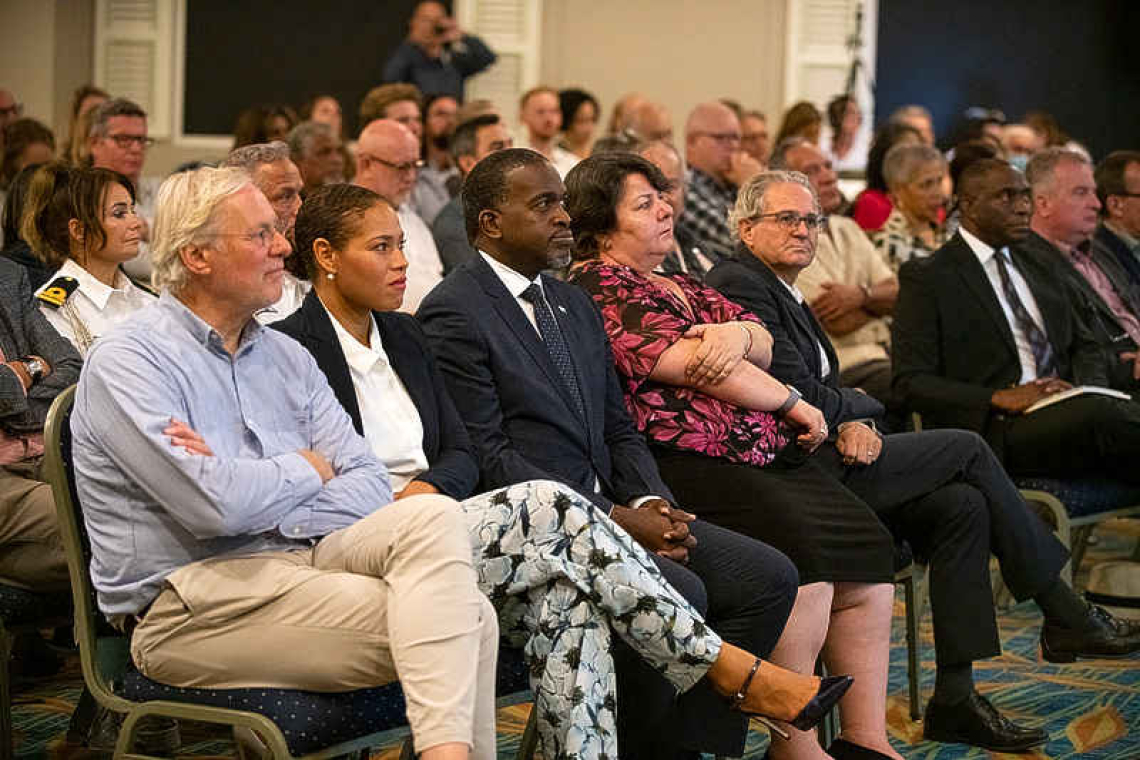Governor of St. Maarten Ajamu Baly was among the special guests of the conference in Curaçao. (Berber van Beek photo)
WILLEMSTAD--Scientists, policymakers, and community representatives from across the Caribbean gathered in Curaçao on November 7 for the “Healthy Waters. Thriving Nature. Vibrant Communities” symposium, hosted by the Dutch Caribbean Nature Alliance (DCNA) and the Caribbean Research and Management of Biodiversity (CARMABI) Foundation.
The regional meeting focused on improving coastal water quality, safeguarding marine ecosystems, and supporting healthier, more resilient communities. The event marked two significant achievements: the launch of DCNA’s new Conservation and Restoration of Key Habitats Program, and the 70th anniversary of CARMABI. Attendees included the Governors of Curaçao and St. Maarten, directors of all six national park organizations in the Dutch Caribbean, and leading policy and scientific experts from the region.
DCNA Director Arno Verhoeven introduced the Key Habitats Program, outlining how it will enhance habitat restoration and protection across the Dutch Caribbean islands. CARMABI Director Dr. Manfred van Veghel reflected on the foundation’s seven decades of research that have shaped marine conservation in the region.
CARMABI’s Prof. Dr. Mark Vermeij stressed that traditional water quality indicators often fail to reflect the true condition of coral reefs, but noted that enough scientific knowledge is already available to begin meaningful restoration. International experts Dr. Andreas Haas (NIOZ), Andy Estep (Waitt Institute), and Dr. Jos Hill (The Nature Conservancy) offered insights into microbial processes, translating scientific research into policy, and the critical role of wastewater management. Their joint message: improving water quality is one of the most effective tools to support both ecosystems and local communities.
Workshop discussions underscored that deteriorating water quality has direct consequences for coral reefs, fisheries, tourism, and public health. Participants highlighted the urgent need for regular coastal water monitoring, stronger collaboration between scientists and policymakers, and improved wastewater management as one of the fastest ways to achieve positive results.
The symposium concluded with a renewed commitment to regional cooperation. During a follow-up workshop, participants identified 11 practical projects that can be implemented immediately to improve coastal water quality across the Dutch Caribbean. These initiatives include upgrading wastewater treatment systems, expanding coastal monitoring, reducing nutrient run-off, strengthening policy frameworks, and engaging local communities in water conservation efforts.
Together, the proposed actions aim to deliver measurable benefits for both people and nature throughout the region.







